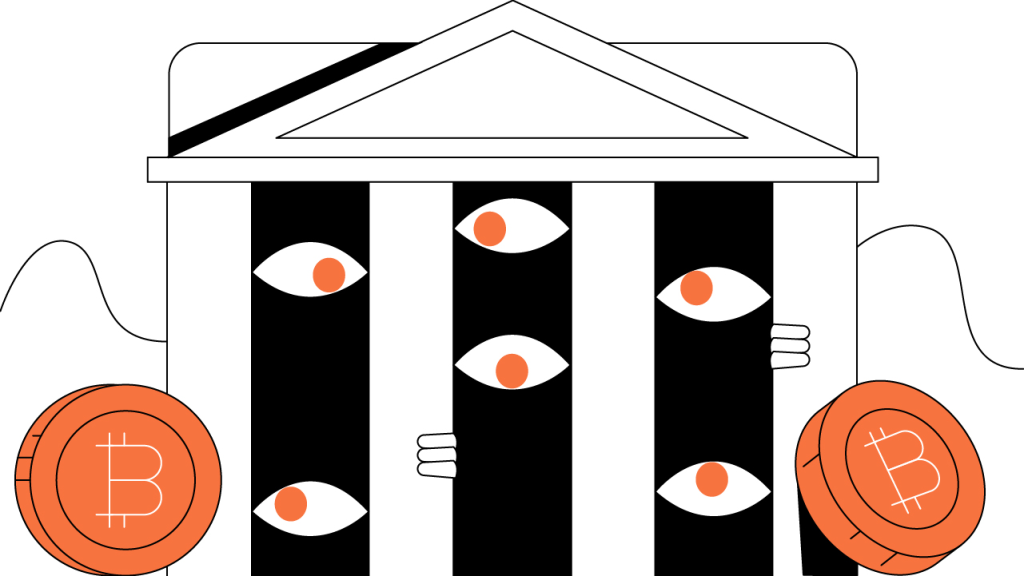What Are Privacy Tokens?
Privacy tokens can allow users to remain anonymous, though this anonymity has led to significant controversy.
Updated November 7, 2024 • 2 min read

Summary
Privacy tokens, or privacy coins, are a type of cryptocurrency designed to preserve user anonymity by masking certain pieces of information. As a result of their anonymous and untraceable nature, they have become a contentious element of the digital assets ecosystem, with some platforms refusing to deal with them.
Privacy and anonymity are ongoing topics of debate within the crypto space. Some argue that it is the right of crypto owners to remain anonymous and engage with the world of digital assets privately should they choose. Others believe that a certain level of privacy must be forfeited to maintain security and safeguard the future of crypto by allowing proper regulation.
Below we take a look at the definition of privacy tokens, the different types available and their legality:
What Are Privacy Tokens?
Privacy tokens, or privacy coins, are designed to preserve user anonymity. These tokens offer features such as hiding the origin or destination of a transaction, the balance of a user’s wallet, and other methods of preventing a transaction or user’s identity from being tracked. Tokens of this kind use a variety of different methods such as advanced cryptography, zero-knowledge proofs, and zk-SNARKs, to provide a high degree of privacy.
Instead of standard verification techniques, they employ techniques such as 'CoinJoin', which merges multiple transactions into one before distributing funds to individual wallets, making transaction histories virtually untraceable. Additionally, privacy-focused blockchains often generate new addresses for each transaction—known as stealth addresses—to ensure that the source of funds remains unverifiable in theory.
What Kinds of Privacy Tokens Exist?
There now exist a wide variety of tokens with the specific purpose of preserving transaction information. Some of the most popular privacy tokens include:
Monero (XMR): The most widely known and popular privacy token, Monero mixes user account keys with public keys from the Monero blockchain, which makes it practically impossible to associate a transaction with a specific user. The project was founded in 2014, and at the time of writing has a market cap of around $4 billion.
Zcash (ZEC): Zcash utilizes zero-knowledge proofs in order to shield the information contained within transactions. One feature of this protocol which makes it popular with users is the ability to enable or disable privacy options as the user desires. Launched in 2016, it has become a staple of the privacy token space, with a market cap of over $600 million.
Oasis (ROSE): Another popular privacy token project, Oasis makes use of techniques such as trusted execution environments and confidential smart contracts to make it difficult to find details relating to transactions. Oasis began more recently than the other examples, launching in 2020, and with a market cap of nearly $500 million.
Are Privacy Tokens Legal?
While privacy tokens offer various degrees of anonymity to their users, their legality varies between jurisdictions, and between platforms. In South Korea, Japan and Australia, the use of privacy tokens is prohibited entirely. In the US, their use is not banned, but certain privacy enhancing platforms (including the notorious coin-mixer Tornado Cash) have been. In Europe, the new Markets in Crypto Assets (MiCA) regulation will reportedly introduce new requirements for privacy tokens in order for them to be compliant.
The privacy features of these tokens can appeal to malicious actors seeking to obfuscate the source of stolen funds, or to preserve their identity after engaging in other illegal activity. For this reason, many privacy tokens fail to meet the listing requirements imposed by centralized crypto exchanges.
While some exchanges have opted to ban privacy tokens, many privacy token users simply value crypto’s original tenants of financial control and are not engaged in anything illegal. But regardless of one’s stance on their use, privacy tokens serve a distinct purpose within the ecosystem, and demand for them is likely to remain high.
Cryptopedia does not guarantee the reliability of the Site content and shall not be held liable for any errors, omissions, or inaccuracies. The opinions and views expressed in any Cryptopedia article are solely those of the author(s) and do not reflect the opinions of Gemini or its management. The information provided on the Site is for informational purposes only, and it does not constitute an endorsement of any of the products and services discussed or investment, financial, or trading advice. A qualified professional should be consulted prior to making financial decisions. Please visit our Cryptopedia Site Policy to learn more.

Is this article helpful?

